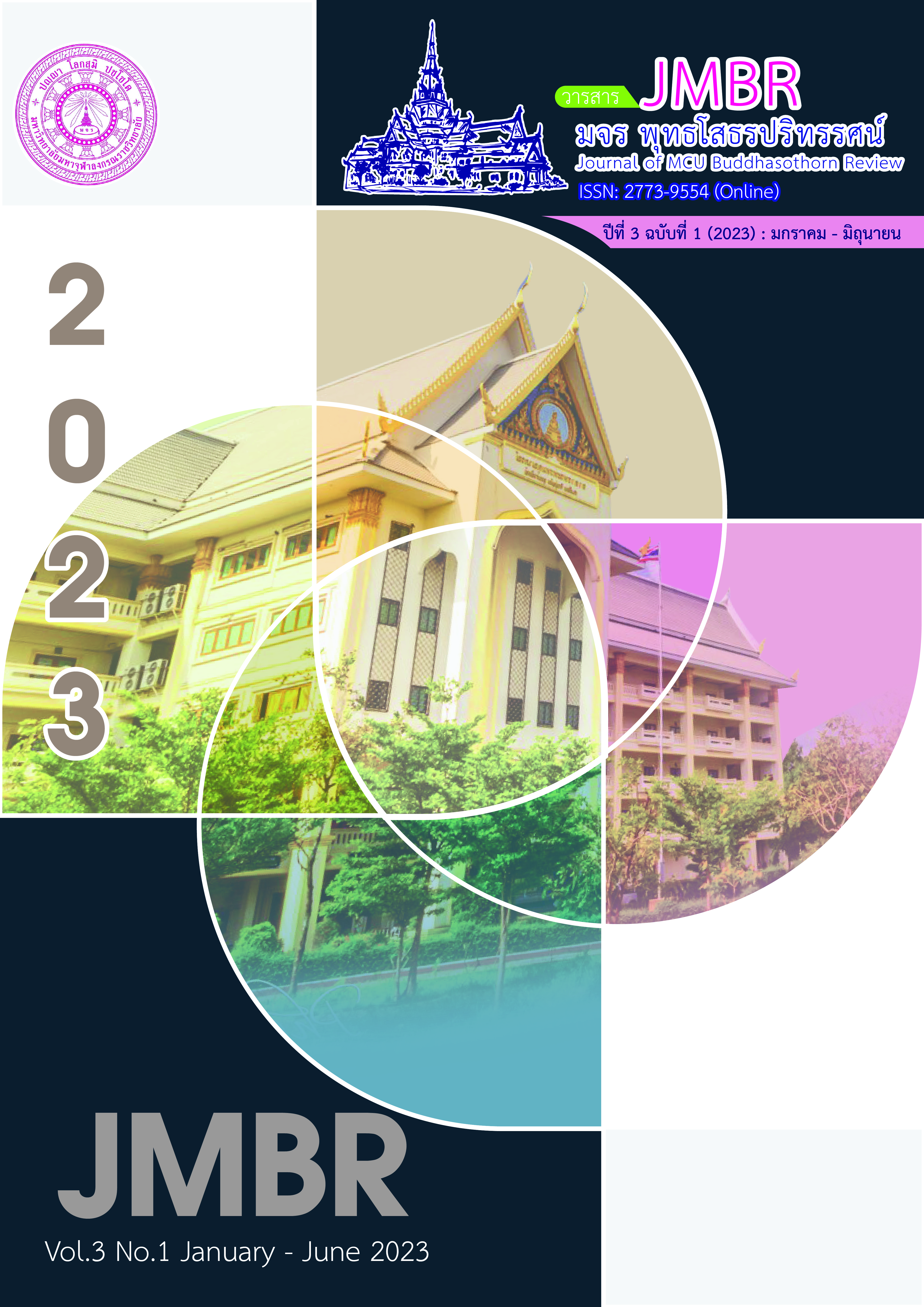Thai monks and educational changes Thai monks and educational changes
Main Article Content
Abstract
In Thailand, the monks have played an important role in education for centuries. In the past, Thai monks were responsible for teaching young people to read and write, including preservation of the scriptures. In the recent years, there have been some changes in the education system in Thailand. This includes the secular curriculum with more standard. However, Thai monks continued to participate in the various forms of education. For an example, many temples in the country began to take the permission license of managing the schools or provide the educational opportunities to youths in their communities. These may include the language classes, computer training, or other professional programs. In addition, the clergy may act to advise and assist the students in some cases. Exactly, the monks are also involved in driving the educational reformation in Thailand. For an example, they focus on critical thinking and creativity in the classroom more than simply memorizing and taking an overall standardized test. Although the role of the monks in the education of Thailand may change, the monks still mostly play the important role in providing the educational opportunities and promoting it in their communities.
Article Details

This work is licensed under a Creative Commons Attribution-NonCommercial-NoDerivatives 4.0 International License.
ต้นฉบับที่ได้รับการตีพิมพ์ในวารสาร มจร พุทธโสธรปริทรรศน์ วิทยาลัยสงฆ์พุทธโสธร มหาวิทยาลัยมหาจุฬาลงกรณราชวิทยาลัย ถือเป็นกรรมสิทธิ์ของวิทยาลัยสงฆ์พุทธโสธร มหาวิทยาลัยมหาจุฬาลงกรณราชวิทยาลัย ห้ามนำข้อความทั้งหมดหรือบางส่วนไปพิมพ์ซ้ำ เว้นเสีย แต่ว่าจะได้รับอนุญาตจากวิทยาลัยฯ เป็นลายลักษณ์อักษร และเพื่อให้เป็นไปตามกฎหมายลิขสิทธิ์ ผู้เขียนทุกท่านต้องลงลายมือชื่อในแบบฟอร์มใบมอบลิขสิทธิ์ บทความให้แก่วารสาร พร้อมกับบทความต้นฉบับที่ได้แก้ไขครั้งสุดท้าย นอกจากนี้ ผู้เขียนทุกท่านต้องยืนยันว่าบทความต้นฉบับที่ส่งมาตีพิมพ์นั้น ได้ส่งมาตีพิมพ์เฉพาะในวารสาร มจร พุทธโสธรปริทรรศน์ เพียงแห่งเดียวเท่านั้น
References
กรมการศาสนา. (2522). กระทรวงศึกษาธิการ. คู่มือครูจริยศึกษา. กรุงเทพฯ: กรมการศาสนากระทรวงศึกษาธิการ.
บุญศรี พานะจิตต์. (2545). ความสำเร็จในการปฏิบัติภารกิจของวัด. กรุงเทพฯ: บริษัท พริกหวานกราฟฟิกจำกัด.
พระครูปลัดอาทิตย์ อตฺถเวที (ซองดี). (2546). การศึกษาแนวคิดและวิธีการปกครองคณะสงฆ์ของ พระเทพโสภณ (ประยูร ธมฺมจิตฺโต) : ศึกษาเฉพาะกรณีพระสังฆาธิการในเขตปกครองภาค 2 (วิทยานิพนธ์พุทธศาสตรมหาบัณฑิต). อยุธยา: มหาวิทยาลัยมหาจุฬาลงกรณราชวิทยาลัย.
พระชลญาณมุนี. (2565). การปรับตัวของพระสงฆ์รุ่นใหม่ในยุคของสังคมออนไลน์. วารสารวิทยาลัยสงฆ์นครลำปาง, 11(1), 203-204.
พระมหาศักดิ์พิชิต ฐานสิทฺโธ (ชัยดี). (2549). ศึกษาบทบาทการเผยแผ่พุทธธรรมของพระวิสุทธาธิบดี (วีระ ภทฺทจารี) (วิทยานิพนธ์พุทธศาสตรมหาบัณฑิต). อยุธยา: มหาวิทยาลัยมหาจุฬาลงกรณราชวิทยาลัย.
พระยุทธนา รมณีธมฺโม (แก้วกันหา). (2547). การศึกษาเชิงวิเคราะห์การจัดองค์กรคณะสงฆ์ในสมัยพุทธกาล (วิทยานิพนธ์พุทธศาสตรมหาบัณฑิต). อยุธยา: มหาวิทยาลัยมหาจุฬาลงกรณราชวิทยาลัย.
พรภิรมย์ ยอดบุญ. (2565). การดำเนินชีวิตให้มีความสุขตามแนวพระพุทธศาสนา. วารสาร มจร พุทธโสธรปริทรรศน์, 2(2), 135-147.
อินถา ศิริวรรณ และนิเวศน์ วงศ์สุวรรณ. (2558). การศึกษาแนวทางพัฒนาการศึกษาของคณะสงฆ์. วารสารครุศาสตร์ปริทรรศน์, 2(2),10-23.
TOT. (19 มิถุนายน 2564). สื่อการเรียนรู้สำหรับคนยุคใหม่-ควรเรียนจากสื่อไหนบ้าง. สืบค้นเมื่อ 23 มิถุนายน 2566, จาก https://www.tot.co.th/sme-tips/SME-tips/2020/06/19/5-.ฤ.


